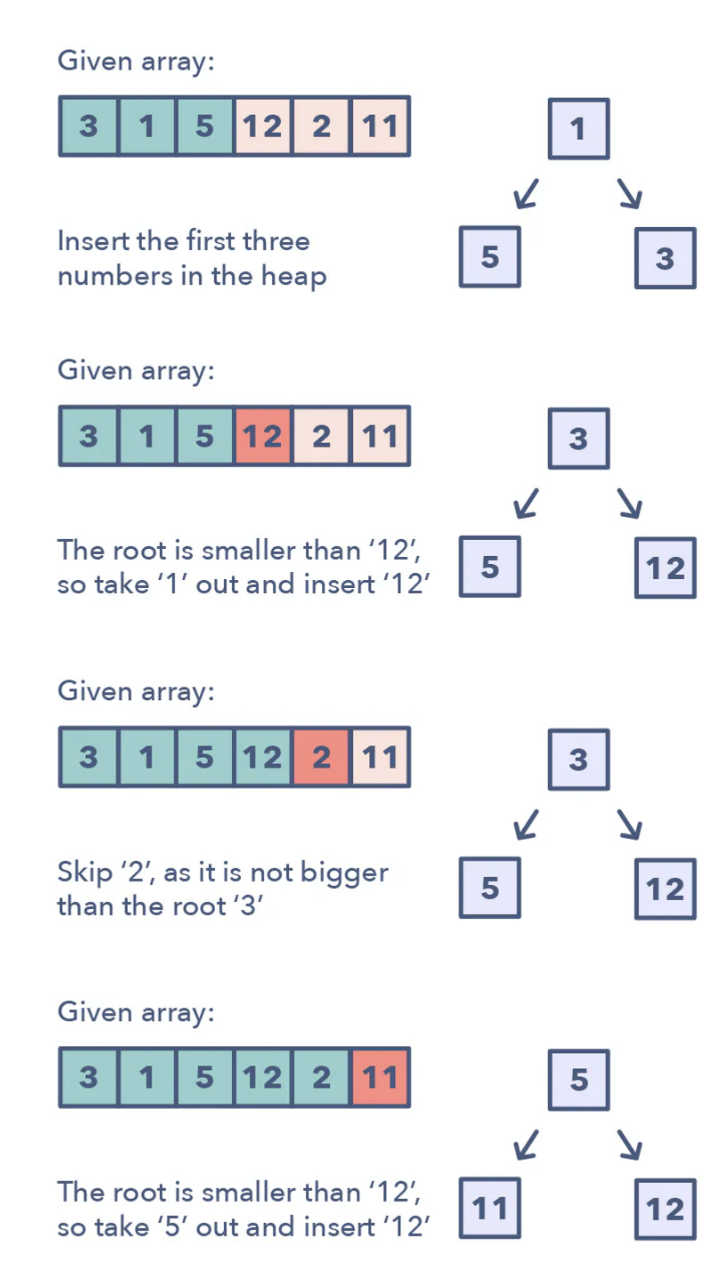Top K Elements

Also see Heap Python
N-th largest element in the array
Intuition
To use nth largest element, the idea is we keep a window of n element and then keep moving that window until we reach to the last element inside the array (See Sliding Windows)
We could code as the following. We compare with the lowest number of the heap by getting heap[0] and use heappushpop() to push an item and also pop 1 out from the heap
def nthLargestInArray(arr, n):
heap = []
for i in range(n):
# We push positive as we want to smallest number in the group of n largest number
heappush(heap, arr[i])
for j in range(i + 1, len(arr)):
# if we find something larger than the smallest number in the group, we put that number in
if heap[0] <= arr[j]:
heappushpop(heap, arr[j])
return heappop(heap)
Optimisation
If you see in here, we actually don't even need to compare if we use heappop() to remove the smallest one for us
For example:
def nthLargestInArray(arr, n):
heap = []
for num in arr:
heappush(heap, num)
if len(heap) > n:
heappop(heap)
return heappop(heap)
Note: in any of our return, it could be better to just return straight heap[0] to avoid calculation in function heappop(num)
N-th smallest element in array
Similar concept
def nthSmallestInArray(arr, n):
heap = []
for num in arr:
heappush(heap, -num)
if len(heap) > n:
heappop(heap)
return -heappop(heap)
Time Complexity
- $O(logn)$ to build a heap, building n elements take $O(nlogn)$
Note
[!note]
For bothnthSmallestInArrayandnthLargestInArray, the top element will be thenthSmallestInArray(largest within the heap of n elements) andnthLargestInArray(smallest element in the heap of n elements) respectively.Therefore we have to think of a way to keep this element on the top.
If we want
nthSmallestInArray, we need to pop out the larger element (because forheapqit will always pop the smaller) — therefore we push in negativeIf we want
nthLargestInArray, we need to pop out the smaller element (defaultheapq) so we just push in the positive